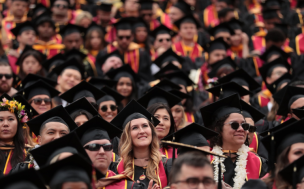CPAs are strategic business advisors who consult individuals, businesses, and other organizations to help them reach their financial goals. With a high standard of financial knowledge and expertise, CPAs can make anywhere from $130k to $240k, according to Glassdoor.
Taking on the CPA exam is therefore a solid career move if you’re looking to establish yourself professionally within the accounting and financial world.
If this sounds like the career for you, then here is everything you need to know about how to become a CPA.
What is a CPA?
A ‘CPA’ is the title given to qualified accountants in the US who have passed the CPA exam and earned their CPA certification, therefore becoming a certified public accountant.
If you're from an English-speaking country outside the US, you may be familiar with the term chartered accountant. In the US, the equivalent professional title is certified public accountant.
The professional CPA qualification enables accountants to be recognized as experts in their field and to perform certain tax and accounting duties that other accountants cannot.
CPAs generally utilize their expertise to help businesses and clients reach their financial aims by advising them on financial matters and creating financial reports. Unlike accountants without a CPA designation, CPAs can also represent clients in Internal Revenue Service (IRS) cases, and both perform and sign off on audits.
Interested in developing your career in accounting? Our personalized Business Education Planner can help you plan out your pathway and navigate your next steps with confidence
Is it worth becoming a CPA?
Earning a CPA designation can open many professional doors as the qualification allows you to work in a variety of fields and specializations.
CPAs can expect to experience a lot of mobility in their careers: many accountants move into public or corporate accounting, government services, education, non-profit, or executive roles after earning CPA licenses. CPAs also tend to specialize in one area, this can range from tax assurance to forensic services to financial planning.
The CPA designation is highly regarded, providing strong career opportunities. CPAs are well respected as experts in their field and can expect to be valued and recognized by many organizations. As a CPA you can expect to earn an estimated 10-15% more than non-CPA licensed professionals working in accounting jobs, according to the Bureau of Labour Statistics (BLS). You can also expect a degree of job security.
“A CPA license is a valuable asset,” says associate professor Lasse Niemi from Aalto University School of Business.
“Having a CPA license enables you to have your own business as an accounting professional. It is also a great way to start your career as the competencies you learn are very broad and can open many doors,” he adds.
CPA requirements: how to become a CPA?
To become a CPA in the US, you must first meet a set of specified CPA requirements which can vary from state to state. Before applying to sit your CPA exam, make sure to check your state's specific exam requirements.
Most states require you to hold a bachelor's degree in business administration, finance, or accounting. As well as a bachelor's degree, you'll also be required to have 120-150 additional semester hours before sitting the uniform CPA examination.
While an accounting degree is not required, many states will expect you to take a certain amount of accounting credits to qualify for the exam.
The uniform CPA exam is divided into three four-hour core sections and one four-hour discipline section of your choice. The core sections are auditing and attestation (AUD), financial accounting and reporting (FAR), and tax and regulation (REG). The discipline sections you get to choose from are Business Analysis and Reporting (BAR), Information Systems and Control (ISC), and Tax Compliance and Planning (TCP). Overall, the exam format includes multiple-choice questions and task-based simulations, testing both theoretical and practical knowledge.
It is important to remember that once you pass the first CPA exam section, you have 18 months to pass the remaining three sections. If you don't pass all four sections within this window, your score from the first section will be wiped and you will need to reapply for the test.
READ: CPA Vs MBA: Why Not Both?
What happens after I pass my exam?
After completing your exam, you will still need to take extra measures before you can gain your full CPA license.
You'll need to complete one to two years of relevant accounting work experience, which must be verified by a licensed CPA, before qualifying for your full license. However, some states may allow you to gain this experience before taking your exams. Some state accounting boards will also specify what type of work experience they require.
After passing the CPA uniform exam, some states will require you to take the American Institute of CPAs (AICPA) ethics exam, which includes 40 multiple-choice accounting-related ethics questions. Your congratulatory letter from your state will indicate if you need to take the exam.
Some states allow candidates to sit for the CPA exam with only 120 semester hours of higher education. However, most jurisdictions still require 150 hours of higher education for the license, even for those who started the exam with just 120 hours. If this applies to you, you'll need to complete the additional hours after passing the exam. For example, in Alabama, candidates can take the exam with only 120 hours, but they must complete the remaining hours to reach 150 within 36 months.
Once you have obtained your full CPA license, you will be expected to take on professional education courses either online or in-person each year to retain your license. The number of credits depends on your state but can be up to 40 hours a year.
It is worth checking your accounting board's requirements online.
How to become a CPA via business school
An accounting degree is not a necessity for becoming a qualified CPA. However, higher education can be a worthwhile step, as an accounting degree will prepare you with the knowledge needed to pass your CPA exam on the first try.
There are also alternative options to a master's degree—other business degrees in relevant fields, such as finance or economics, can help you prepare for the CPA exam.
Brian Armstrong pursued a master's degree in business taxation and data analytics at Villanova University before later obtaining his CPA license. Despite graduating from the program, fulfilling the necessary requirements remained a challenge.
"I went through every lesson in the book that my study provider assigned to me, I took some time to do my own review. I did practice tests. I made sure I was above the threshold where I needed to be, and then I worried about scheduling the exam,” he says.
Brian's experience is quite typical for business school students who pursue a CPA designation, highlighting that the journey to becoming a CPA is not easy. Nevertheless, the skills and opportunities gained from earning the CPA designation can have a transformative impact on your career.









